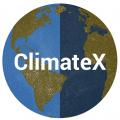Description
Maria Zuber, Vice President for Research at MIT and the lead on MIT’s Climate Action Plan, shares her thoughts on how MIT is going green and tackling climate change.
Maria highlights the importance of the community-driven approach to dealing with climate change at MIT and commends the involvement of the MIT community in shaping its policies and actions.
Furthermore, Maria explains how MIT plans to use a newly-purchased solar farm in North Carolina to offset 17% of the institute’s greenhouse gasses, a step towards achieving its clean energy goals.
Transcriptions
[00:00:00:08] I'm Maria Zuber. I'm the Vice President for Research at MIT I'm also the EA Griswold Professor of Geophysics. I led MIT'S Department of Earth Atmospheric and Planetary Sciences, which gave me a window into a climate and energy problems. And I was privileged to lead the institutional effort to put together MIT's climate action plan.
[00:00:29:00]
[00:00:33:24] We really need to be thinking not only of ourselves and the cost to our current society for addressing this problem, but also what we're passing on to future generations. And our children and our grandchildren, they are not going to forgive us if we don't make decisions that take into account their situation as we move into the future.
[00:01:02:20] We got a lot of input from our community on what's the most important thing that we could do to mitigate climate change. And what we heard uniformly from our community was that the most effective thing that we could do would be put a price on carbon. And that put us in a pretty interesting place, because MIT as an institution, we typically make institutional statements on the basis of values and principles, but not policies.
[00:01:38:29] And of course at MIT, we love to use science to provide the basis for designing an engineering solution. And we fundamentally are problem-solvers. All of the great engineering solutions that we can come up with will do us no good on this problem if we don't have policies in place.
[00:02:01:01]
[00:02:04:13] We have activities that go across the campus, that deal with climate and the environment. We have a plan for action for climate change that was released to the community about a year and a half ago. MIT announced a power purchase agreement for a solar farm in North Carolina for 44 megawatts of electricity. It offsets 17% of the Institute's greenhouse gases, but it does more than that. It demonstrates the value of partnerships in really working with others to achieve clean energy goals, really in a cost-effective way. And we're also making good progress within our Energy Initiative of setting up and standing up a variety of low carbon energy centers to deal with issues and the energy and climate system. In designing any solution, we need to think not only about the developed world, but also the very special case of the developing world and what those challenges are.
[00:03:26:14]
[00:03:30:17] The fundamental tenant of our climate action plan is engagement, engaging with partners in industry, in the nonprofit world, in government, with the general public, international entities and national entities to try to move this forward. And we also felt like that we could use our position as being an objective authority in science and technology as a convener.
[00:04:08:21] I just recently wrote an opinion piece in The Washington Post that talked about my own life growing up in coal country and where the mines closed, and people lost their jobs, and just observed firsthand a great deal of economic hardship. And really contrasting that with my understanding of a scientist, as a scientist where it is well-known that putting CO2 in the atmosphere causes greenhouse warming, and knowing full well that coal releases the most CO2 gases of other fossil fuels. Which leads you to not want to burn coal. It's an opportunity to start a conversation, to say that we as scientists have a responsibility to speak the truth about science, but also to address the consequences of changes that have to occur, because we do have an understanding of the science.





